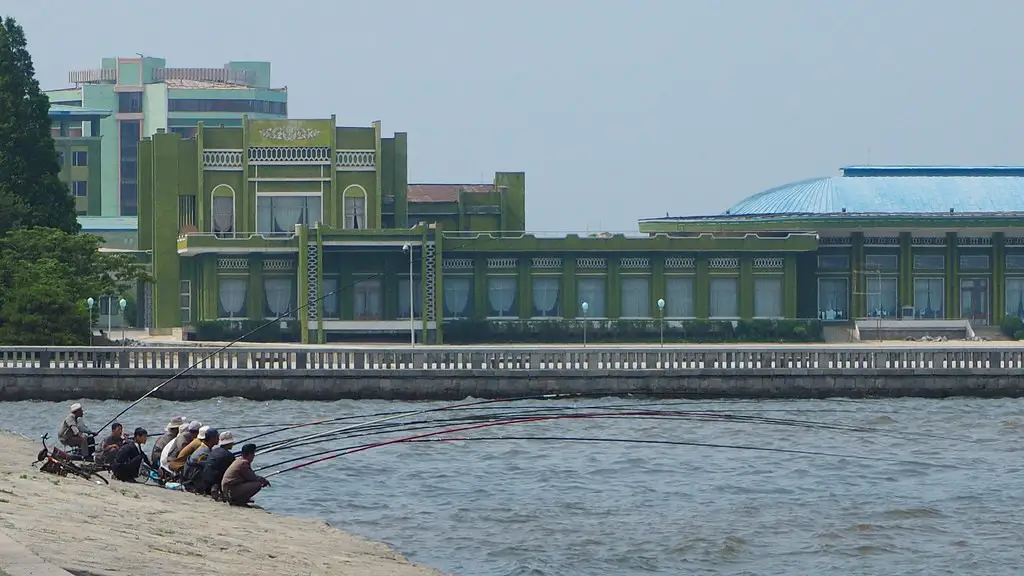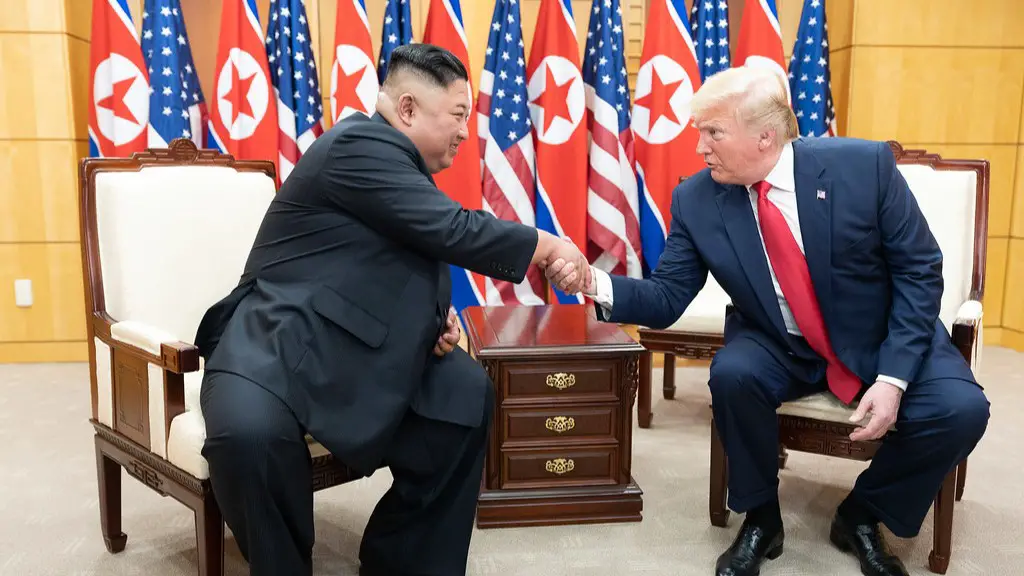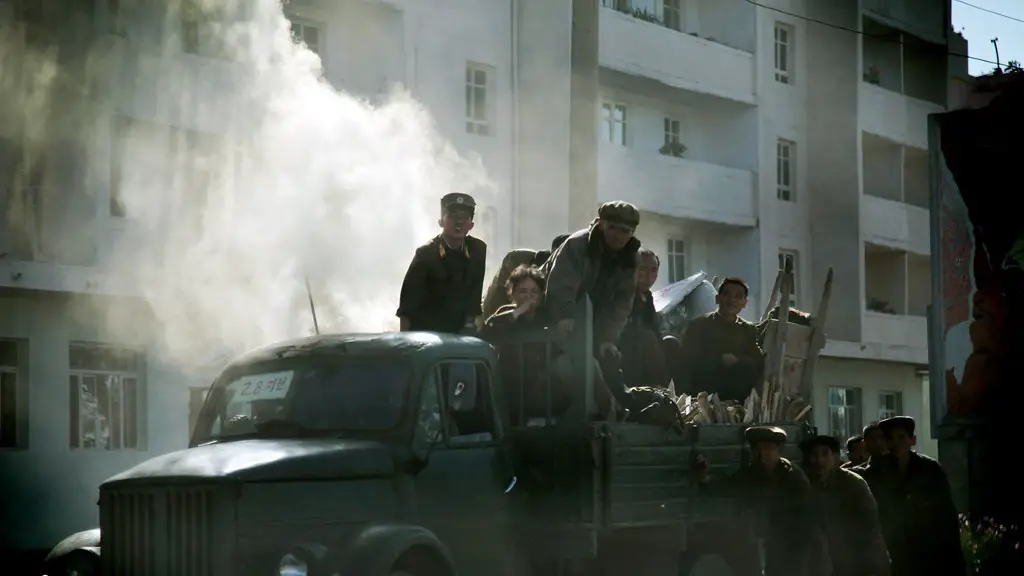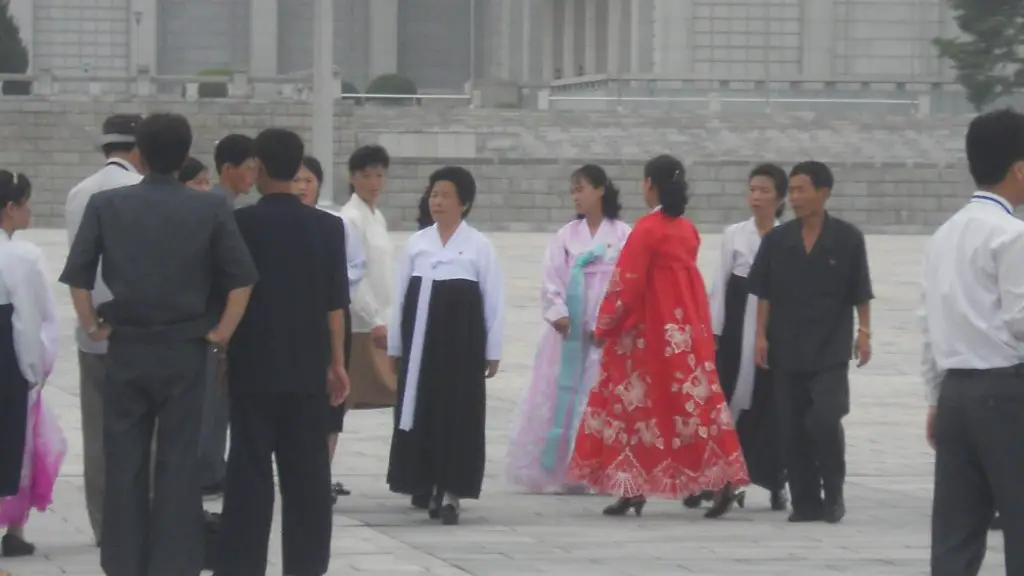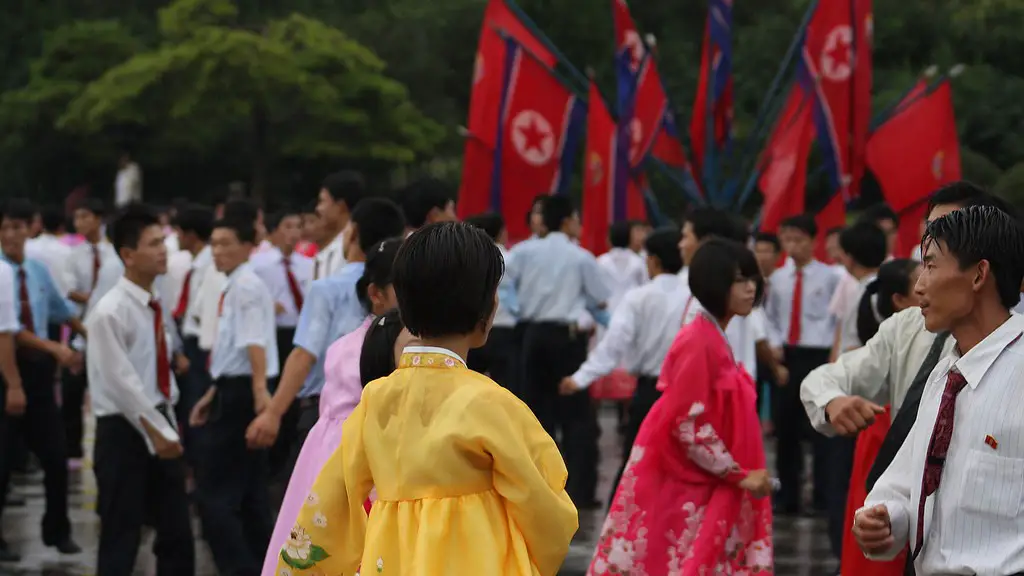Kim Jong-Un
Kim Jong-Un took power after the death of his father, Kim Jong-Il, in 2011. His official title is Chairman of the Workers’ Party of Korea and its Central Military Commission, as well as Supreme Commander of the Korean People’s Army. He is the leader of the Democratic People’s Republic of Korea.
Under Kim Jong-Un, North Korea has significantly increased its nuclear capabilities, launching ballistic missiles and conducting nuclear tests despite global condemnation. Kim has also developed closer ties with Russia and China, both of which are concerned with “denuclearizing the Korean peninsula”.
While Kim has adopted a less belligerent attitude toward South Korea than his predecessors, his policies have been characterized as “respectful of Pyongyang’s preeminence and its history of brutal, militaristic rule.” Kim has also promoted economic development within North Korea, and the country has seen some economic reforms under his leadership, though North Korea remains largely closed off to the rest of the world.
Kim Jong-Un’s leadership has been widely criticized, particularly in the international community. Human rights activists have spoken out against his oppressive rule and his refusal to consider democratic reforms. Many experts also consider his aggressive military posturing to be provocative and destabilizing. Furthermore, Kim has overseen the oppressive censorship of media and the limiting of freedom of expression within North Korea.
Despite the fact that North Korea is a strictly authoritarian state, Kim Jong-Un has held onto power in large part because of his support from the military and the ruling party. He has also managed to garner considerable public support through his nationalist “best friend of the people” slogan and his promotion of economic and social policies that many citizens see as beneficial. Thus, his status as ruler of North Korea has remained largely unchallenged.
Kim Jong-Un has fostered a carefully cultivated image of himself as the benevolent leader of North Korea, making occasional diplomatic overtures to the international community. His style of leadership is considerably more unpredictable and mercurial than that of his father and grandfather. It is unclear whether Kim will continue to lead North Korea in a more moderate direction or if he will backpedal on his more conciliatory diplomatic efforts.
Tyrannical Oppression
The North Korean government under Kim Jong-Un is one of the most oppressive authoritarian regimes in the world. Kim has continued the policy of his predecessors of suppressing dissent and quashing any opposition to his leadership. He has cracked down on perceived dissidents, incarcerating anyone who speaks out against the regime. Activists, journalists, and even members of the intelligentsia have been arrested and detained in labor camps, where torture and mistreatment abound.
North Koreans are subject to a strict system of surveillance and censorship. The country’s propaganda apparatus is used to control what its citizens see, hear, and think. It also serves to glorify the regime and promote its own opinions. Access to the outside world is severely limited, and citizens must heavily self-censor their activities for fear of being seen as disloyal.
The regime also uses its economic policies to maintain its grip on power. North Koreans are unable to access the internet or international phone services, and those who attempt to access foreign media are severely punished. The government uses food shortages to control its population and ensure compliance with its orders. Imports are strictly limited and exports of certain goods are illegal.
Lastly, North Koreans are also subjected to abuse by the security forces, which operate largely unchecked by any sort of rule of law. Kim Jong-Un has continued to maintain a cult of personality and has been accused of widespread human rights abuses.
Political Interference
The North Korean government is one of the most isolated in the world, and its foreign relations are carefully managed by Kim Jong-Un. The nation has refused to participate in any multilateral talks, citing its mistrust of foreign powers as a reason for its reluctance. North Korea has also been accused of interfering in the political affairs of various countries, particularly South Korea.
In 2014, the country was implicated in a cyberattack on Sony Pictures. The attack was seen as an attempt to prevent the release of a movie that depicted the assassination of Kim Jong-Un. North Korea has also been linked to a number of high-profile assassinations as well as attempted assassinations of a number of prominent international figures.
Kim Jong-Un’s aggressive foreign policy and his pursuit of nuclear weapons have put North Korea in direct conflict with the United States, as well as with its regional allies. Pyongyang’s development of nuclear weapons has raised serious global security concerns, as there are fears that the weapons could be used to destabilize the region.
The US has imposed numerous economic sanctions on North Korea in an effort to pressure the nation to abandon its nuclear weapons program. Despite the sanctions, Pyongyang continues to defy the international community, further escalating tensions in the region.
Social Conditions
Life in North Korea under Kim Jong-Un’s authoritarian rule has become increasingly dire, compounded by the COVID-19 pandemic and the economic sanctions imposed by the international community. The country is plagued by poverty and food shortages, due in part to its inefficient and state-controlled economy.
Opportunities for education and advancement are severely limited, and access to healthcare is poor. Human rights are routinely violated, and conditions in North Korea’s prison camps are said to be brutal. The lack of access to the outside world is another major concern, as North Koreans are unable to access information about the rest of the world and the world cannot access information about North Korea.
Furthermore, North Koreans are subject to a strict system of censorship and have to carefully self-censor their activities. Despite some economic reforms under Kim Jong-Un, the nation remains largely closed off from the rest of the world.
Missile Program
North Korea has also greatly increased its nuclear capability under Kim Jong-Un. DPRK has tested atomic bombs and launched long-range ballistic missiles in defiance of the international community. These tests have been seen as a show of strength by the North Korean regime and a way of asserting its power on the international stage.
In 2017, North Korea carried out its sixth nuclear test, prompting the United Nations to pass a slew of sanctions against the nation. The country has also launched intercontinental ballistic missiles designed to reach the US mainland, further heightening tensions between the two nations.
The tests have sparked serious security concerns in the region, as well as fears that Pyongyang could use its weapons to threaten its neighbors. The US and other countries in the region have responded by increasing military presence in the area and imposing even tougher sanctions.
Libya’s Precedent
The international community has tried to use the precedent of Libya to persuade North Korea to abandon its nuclear program. In 2003, then-Libyan leader Muammar Gaddafi gave up his nation’s pursuit of nuclear weapons in exchange for a normalization of relations with the US and other countries. Libya also received economic aid from the US in exchange for its commitment to disarm.
However, North Korea has refused to follow the same path of denuclearization, claiming it needs nuclear weapons for its own security. Nevertheless, there have been recent signs that North Korea may be more willing to negotiate with the international community if certain concessions are made. Kim Jong-Un’s diplomatic overtures to South Korea and the US could indicate that a meaningful nuclear disarmament deal is possible in the future.
Military Movements
The North Korean military under Kim Jong-Un has increased its presence around the Korean border and engaged in increasingly bellicose rhetoric towards South Korea. Pyongyang has also been conducting more frequent military exercises around the North Korean coast, prompting concern from South Korea and other countries in the region.
The US and South Korea have responded by intensifying their joint military exercises and increasing their military presence in the region. US and South Korean forces have conducted several joint military exercises in recent years, in an effort to deter and counter any potential aggression from North Korea.
The US and its allies have also been vocal about their commitment to defending South Korea and maintaining a stable and peaceful region. Despite this, tensions have remained high along the Korean border and further military confrontation is a distinct possibility.
Closed Off Foreign Relations
The international community has largely isolated North Korea due to its adherence to an oppressive, authoritarian regime and its nuclear weapons program. Pyongyang has had few diplomatic contacts with the rest of the world and has been ostracized by many of its Asian neighbours.
The United Nations has imposed numerous economic sanctions on North Korea, in an attempt to force it to end its nuclear program and agree to a peaceful resolution of the Korean conflict. Despite this, the regime has been largely impervious to international pressure and continues to pursue its own goals.
North Korea’s foreign relations have improved somewhat in recent years, largely due to Kim Jong-Un’s diplomatic overtures. North Korea has maintained ties with China and Russia and has taken steps to open up its economy to foreign investment. However, North Korea’s relationship with the rest of the world remains somewhat strained, and few countries are willing to commit to closer cooperation.
